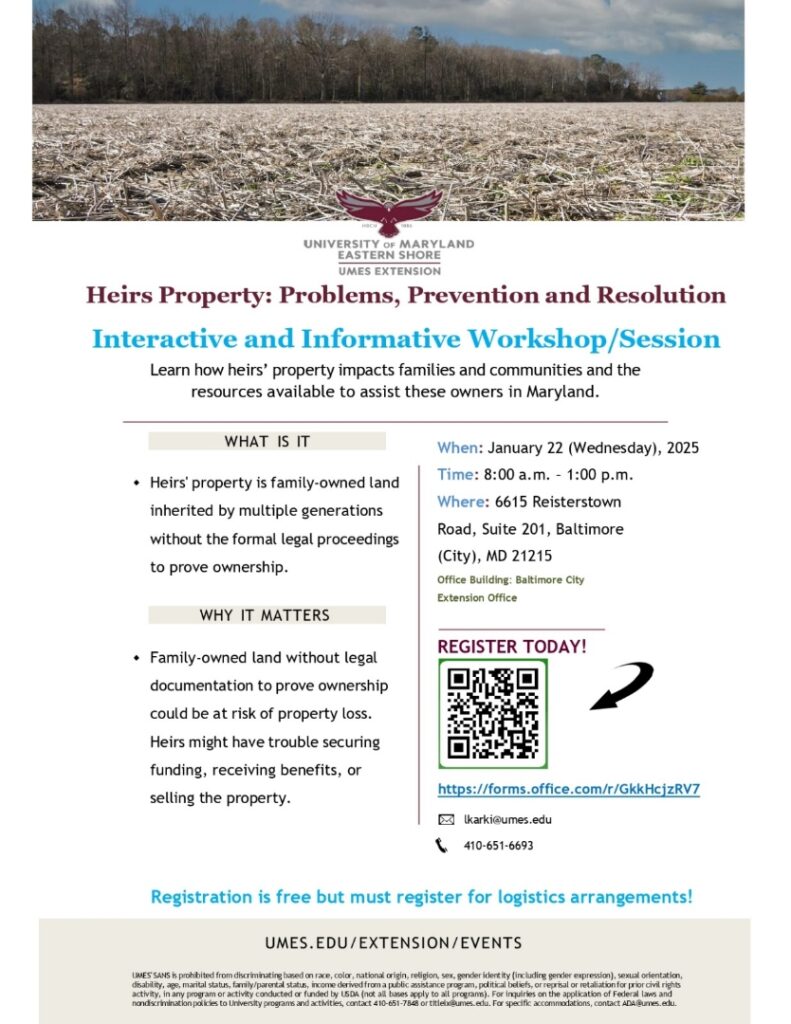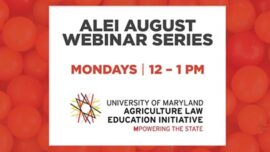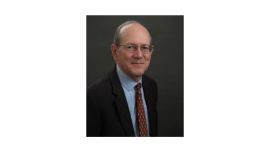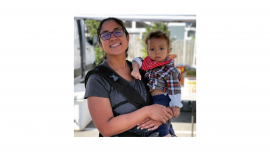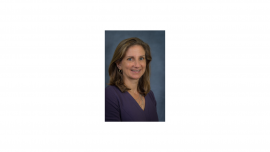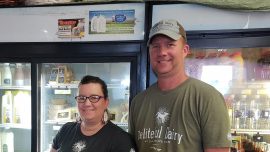March 2017 Update

ALEI Launches Newly Redesigned Website
The Agriculture Law Education Initiative (ALEI) is pleased to announce the launch of our fully redesigned website. This user-friendly redesign includes several new features, including dynamic graphics, a highlighted video library, and perhaps most importantly, a search bar that allows users to search the entire ALEI website for a specific resource or topic. This new website will allow ALEI to continue to grow and keep up with the needs of its web audience.
Show More
“We outgrew our old website because the amount of offerings we have for the public have changed a lot and we have a lot of media content,” said Mayhah Suri, a faculty specialist. “We wanted to get into the 21st century and be a modern and responsive media organization.”
A key component of ALEI’s mission is to connect Maryland farm families with timely, relevant information. To achieve this mission ALEI uses a diverse online outreach strategy, including social media, blogging, and multimedia web-based resources. The site serves as a user-friendly introduction to ALEI and as a navigable repository of the resources ALEI has for farmers.
The new website was launched on January 18, 2017. The redesign took several months to complete, and includes information about upcoming events associated with ALEI as well as ALEI’s social media links to keep readers up to date on a variety of platforms. Emails to ALEI may also be sent through the website.
Visit the newly designed ALEI website at www.umaglaw.org
By Sarah Fielder, ALEI Communications Intern
Maryland Farmers Are Committed to Ensuring Their Food is Safe
Maryland’s farmers are a diverse group but they all have one thing in common, namely they all want to produce safe food for consumers. ALEI is committed to helping Maryland’s farmers achieve this goal by offering and supporting food safety education.
Show More
ALEI legal specialists presented at the state’s Good Agricultural Practice (GAP) trainings hosted by the Maryland Department of Agriculture (MDA) and the food safety specialists at the University of Maryland (UMD). The GAP trainings teach Maryland farmers to farm in a way to reduce the likelihood of contaminating produce. GAP standards address water quality, manure and compost use, worker health and hygiene, and contamination from wild life, domestic animals, and livestock.
Sarah Everhart, an ALEI legal specialist and research associate, presented to farmers at the GAP training session on January 24 in Westminster, Maryland, discussing civil and criminal liability stemming from foodborne illness outbreaks. Everhart said it is important that farmers understand the legal underpinnings of foodborne illness liability cases. Once farmers understand how and when legal liability occurs in a foodborne illness outbreak, they can focus on prevention and take steps to avoid liability. Clearly and sufficiently labelling farm products is one way farmers may be able to prevent foodborne illness liability.
ALEI has also supported MDA and UMD efforts to educate and train farmers on the federal Food Safety Modernization Act (FSMA). Everhart recently explained the basics of FSMA’s Produce Safety and Preventive Controls Rules to farmers at the Eastern Shore Vegetable Growers meeting and encouraged the farmers to attend an upcoming FSMA training course. The good news for Maryland farmers following Maryland GAP is that the Maryland GAP contains many of the same standards required by FSMA.
Everhart explained the main differences in the food safety programs are first, FSMA training is legally required for those farmers subject to the law and second, water testing and related record keeping is more frequently required.
Farmers can find out about upcoming FSMA trainings by checking the events section of the ALEI website (www.umaglaw.org/events). The ALEI legal specialists are committed to creating legal resources and education opportunities to help Maryland farmers maintain the best possible level of food safety.
By Sarah Everhart
